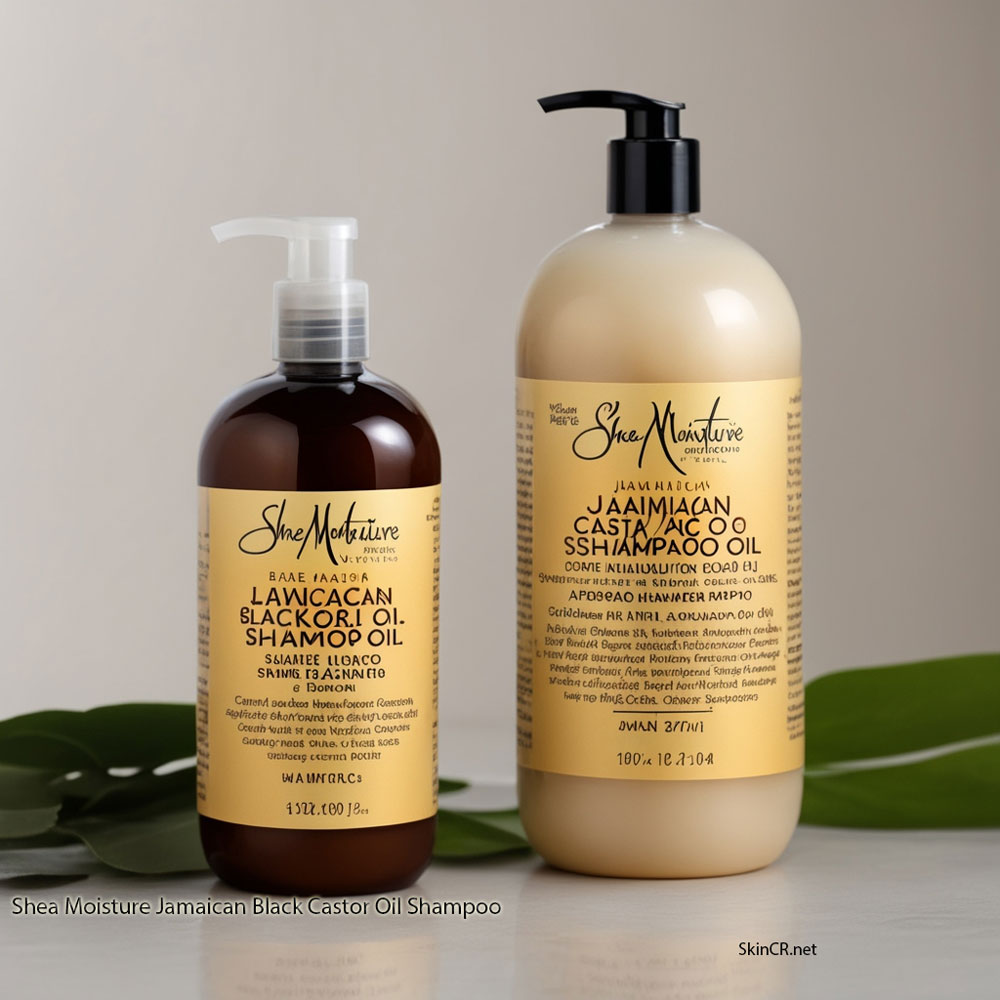Olive oil has been celebrated for centuries for its numerous health benefits and versatile culinary uses. It’s often hailed as a natural wonder, not only for its nutritional value but also for its potential skincare benefits. Many people incorporate olive oil into their skincare routines, believing it can provide moisturization, nourishment, and even anti-aging effects. However, while olive oil may offer some advantages for the skin, it’s essential to explore the flip side of the coin – the potential disadvantages. In this comprehensive guide, we will delve into the possible downsides of using olive oil on the face and help you make an informed decision about whether it’s suitable for your skincare regimen.
Understanding Olive Oil: A Brief Overview
What Is Olive Oil?
Olive oil, derived from the fruit of the olive tree (Olea europaea), is a staple in Mediterranean cuisine and has a rich history dating back thousands of years. It is primarily composed of oleic acid, a monounsaturated fat, and contains various antioxidants, vitamins, and minerals.

Nutritional and Culinary Benefits
Olive oil is renowned for its nutritional benefits. It is a source of heart-healthy monounsaturated fats, which may help reduce the risk of cardiovascular diseases. Additionally, it contains antioxidants, such as vitamin E, that can combat free radicals in the body.
Emergence in Skincare
In recent years, olive oil has gained popularity in the realm of skincare. Many people have turned to this natural ingredient as a potential solution for dryness, wrinkles, and overall skin health. However, while olive oil’s nutritional value is well-established, its application on the skin is a topic of debate.
The Hype Around Olive Oil for Skincare: What Are the Claims?
Moisturization and Hydration
One of the primary claims associated with olive oil in skincare is its moisturizing and hydrating properties. Advocates argue that the fatty acids in olive oil can help lock in moisture, making it an effective natural moisturizer.
Antioxidant Properties
Olive oil contains antioxidants, such as vitamin E and polyphenols, which are believed to combat free radicals, potentially protecting the skin from premature aging and environmental damage.
Anti-Aging Effects
Some people use olive oil to reduce the appearance of fine lines and wrinkles. It is thought to promote skin elasticity and suppleness.
Makeup Removal
Olive oil is commonly used as a natural makeup remover. Its oily texture is believed to dissolve makeup effectively, leaving the skin clean and hydrated.
Natural Remedies
In traditional medicine, olive oil has been used for various skin ailments, such as eczema and psoriasis. It is believed to soothe irritated skin and provide relief from itching.
While these claims have garnered significant attention, it’s important to explore the potential disadvantages of using olive oil on the face.
The Downside of Using Olive Oil on the Face
Pore Clogging: The Risk of Acne
One of the most significant disadvantages of using olive oil on the face is its comedogenic potential. Comedogenic substances have the tendency to clog pores, leading to the formation of acne. Olive oil, especially extra virgin olive oil (EVOO), is rated moderately comedogenic on the scale, which means it has the potential to block pores and trigger breakouts. This can be particularly problematic for individuals with acne-prone skin.
Potential Allergic Reactions: Skin Sensitivity
While olive oil is generally considered safe for topical use, some individuals may be sensitive or allergic to it. Allergic reactions can manifest as redness, itching, or irritation on the skin. It’s essential to perform a patch test before applying olive oil to the face to avoid unexpected adverse reactions.
Comedogenic Rating: Understanding the Scale
Understanding the comedogenic rating scale is crucial when considering oils for skincare. The scale ranks substances from 0 to 5, with 0 being non-comedogenic (unlikely to clog pores) and 5 being highly comedogenic (highly likely to clog pores). Olive oil typically falls between 2 and 3 on the scale, indicating a moderate risk of pore blockage.
Uneven Skin Tone: The Likelihood of Discoloration
Using olive oil on the face, especially for extended periods, may lead to uneven skin tone or discoloration. This can occur due to the blocking of pores, trapping of dead skin cells, and potential inflammation.
Greasy Residue: Aesthetic Concerns
Olive oil has a rich and oily texture, which some individuals may find uncomfortable or unpleasant on the skin. The greasy residue can also make it challenging to apply makeup evenly.
While olive oil may offer benefits for some skin types, these potential disadvantages should be considered carefully.
Olive Oil Quality Matters: Choosing the Right Type
The type of olive oil you choose for skincare can impact its effectiveness and potential drawbacks. Here are two common types:
Extra Virgin Olive Oil (EVOO)
- EVOO is derived from the first pressing of olives and is considered the highest quality.
- It contains the most antioxidants and retains the natural aroma and flavor of olives.
- EVOO has a stronger scent and flavor compared to other olive oil types.
Refined Olive Oil
- Refined olive oil undergoes processing, which removes many impurities and flavors.
- It has a milder scent and flavor than EVOO.
- Refined olive oil may have fewer beneficial compounds due to processing.
The Impact on Skincare:
EVOO is often recommended for skincare purposes due to its higher antioxidant content. However, it also has a higher comedogenic rating than refined olive oil. Individuals with acne-prone or sensitive skin may want to consider using refined olive oil or exploring alternatives with lower comedogenic ratings.
Individual Factors: How Skin Type and Condition Influence Results
Dry Skin
Olive oil may work well for individuals with dry skin, as it can provide much-needed hydration and moisture. However, those with dry skin should be cautious about using it in excessive amounts to avoid potential pore-clogging.
Olive oil may not be the best choice for those with oily skin, as it has the potential to exacerbate oiliness and acne breakouts.
Sensitive Skin
Individuals with sensitive skin should perform a patch test to ensure they do not experience adverse reactions. While some people with sensitive skin tolerate olive oil well, others may find it irritating.
Acne-Prone Skin
Using olive oil on acne-prone skin can be risky due to its comedogenic rating. It may lead to clogged pores and breakouts.
Aging Skin
Olive oil’s antioxidant content may benefit aging skin by potentially reducing the appearance of fine lines and wrinkles. However, it’s important to monitor for adverse reactions.
It’s crucial to consider your skin type and any pre-existing skin conditions when deciding whether to use olive oil on your face.
Alternatives to Olive Oil for Skincare
If you’re concerned about the potential disadvantages of using olive oil on your face, several alternative oils and skincare products may better suit your needs:
- Known for its moisturizing properties.
- Suitable for some skin types but may be comedogenic for others.
Jojoba Oil
- Non-comedogenic and suitable for a wide range of skin types.
- Known for its moisturizing and soothing properties.
- Rich in antioxidants and vitamin E.
- Can be suitable for dry and aging skin.
Grapeseed Oil
- Lightweight and non-comedogenic.
- Ideal for oily and acne-prone skin.
Sunflower Oil
- Non-comedogenic and rich in linoleic acid.
- Suitable for various skin types.
Shea Butter
- Known for its intense moisturizing properties.
- Best for very dry or sensitive skin.
Commercial Skincare Products
- Consider using dermatologist-recommended products formulated for specific skincare concerns.
Proper Application and Precautions: Minimizing Risks
To minimize the potential disadvantages of using olive oil on your face, follow these guidelines:
Patch Testing
Before applying olive oil to your face, conduct a patch test on a small area of your skin to ascertain whether you have any sensitivity or allergies to it.
Dilution
If you choose to use olive oil, consider diluting it with a non-comedogenic carrier oil to reduce its concentration.
Cleansing and Removal
If using olive oil as a makeup remover or cleanser, ensure you thoroughly cleanse and remove any residue to avoid pore blockage.
Sun Protection
Always wear sunscreen during the day to protect your skin from UV damage, especially if you are using olive oil, as it may not provide adequate sun protection on its own.
The Verdict: Is Olive Oil Right for Your Face?
The decision to use olive oil on your face should be based on your individual skin type, preferences, and tolerance for potential risks. While olive oil does offer some skincare benefits, such as moisturization and antioxidant protection, it also carries potential disadvantages, including pore-clogging and the risk of acne.
Consider your skin’s unique needs and sensitivities, and be cautious when introducing olive oil into your skincare routine. Always perform a patch test, monitor your skin’s reaction, and be mindful of the quality of olive oil you use.
Ultimately, there are numerous alternative skincare oils and products available that may better suit your skin type and address specific concerns. Consulting with a dermatologist can provide personalized recommendations tailored to your skincare goals.
Some potential disadvantages of using olive oil on the face
- Risk of Clogged Pores: Olive oil is a heavy oil, and using it excessively on the face may clog pores, leading to acne and breakouts. This is especially a concern for individuals with oily or acne-prone skin. [Source: Healthline]
- Not Suitable for All Skin Types: Olive oil may not be suitable for people with sensitive skin as it can cause irritation or allergic reactions. It’s essential to perform a patch test before using it on your face. [Source: Medical News Today]
- Limited Sun Protection: While olive oil contains antioxidants, it offers minimal sun protection. Relying solely on olive oil for sun protection can lead to sunburn and skin damage. [Source: Dermatology Times]
- Unpredictable Results: The effects of olive oil on the face can vary from person to person. Some may experience improved skin hydration, while others may encounter dryness or increased oiliness. [Source: Byrdie]
- Short-Term Benefits: Olive oil may provide short-term hydration, but it may not address underlying skin concerns in the long run. It’s not a comprehensive solution for all skincare needs. [Source: Cosmopolitan]
Conclusion
In conclusion, while olive oil may be a blessing for some, it may turn out to be a curse for others when used on the face. Understanding the potential advantages and disadvantages is crucial to making an informed decision about incorporating olive oil into your skincare regimen. Your skin’s health and appearance should always be a top priority, and choosing the right products and ingredients is essential in achieving that goal.


